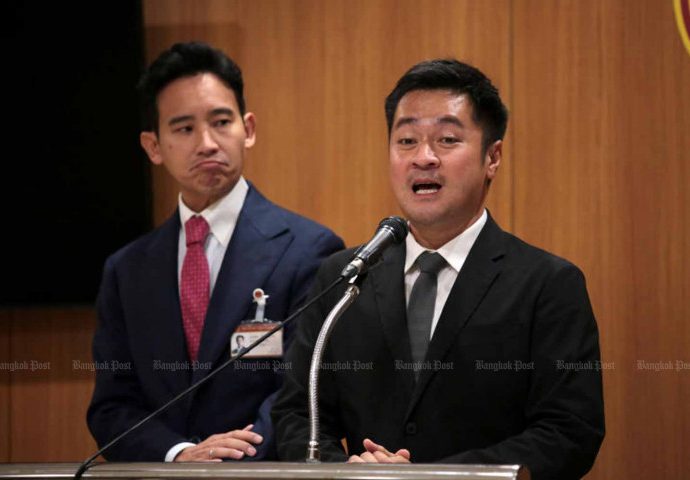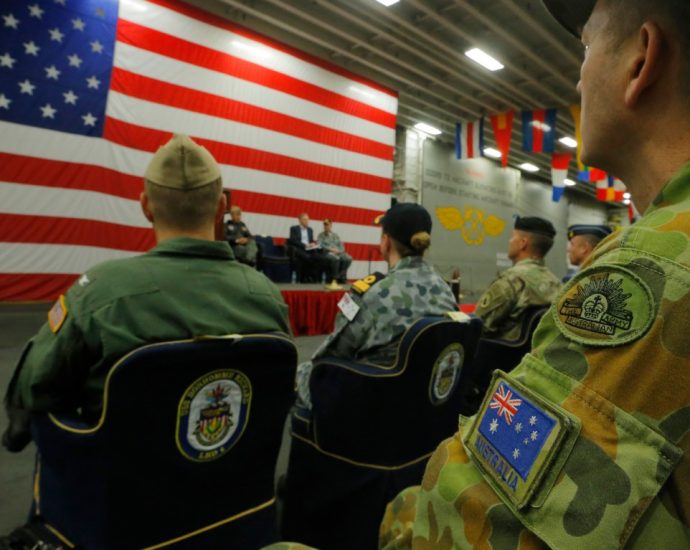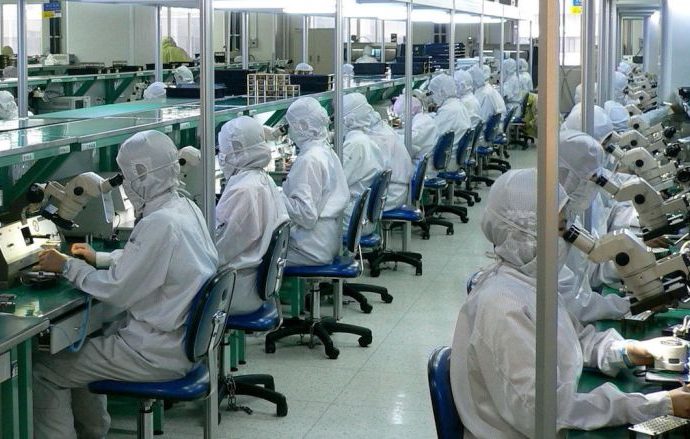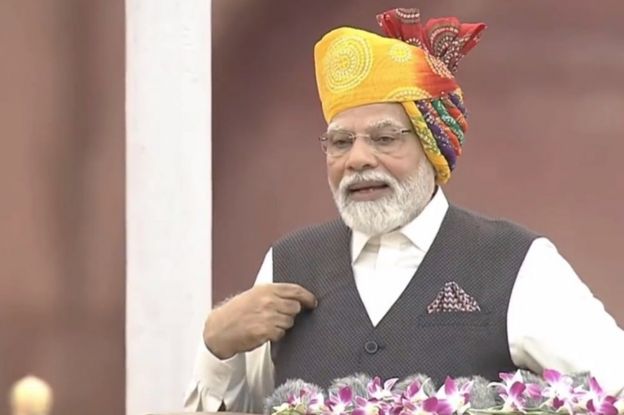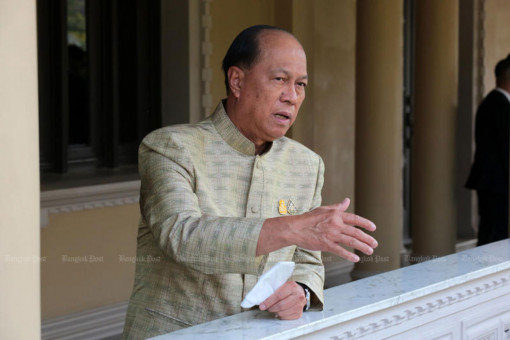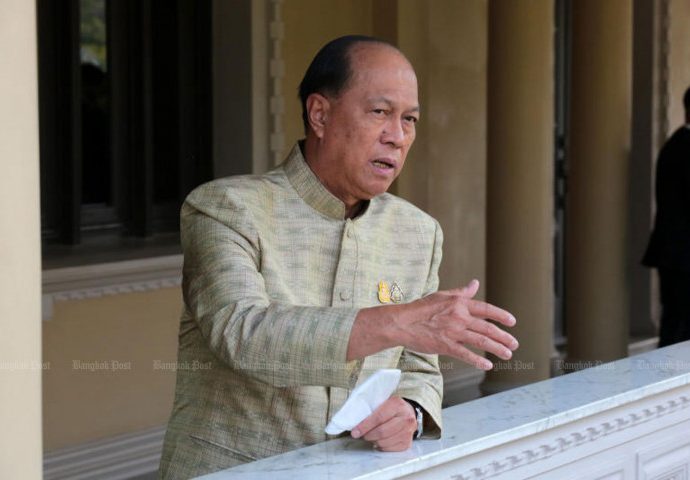Malaysia state elections uphold status quo, hint at the future
Both a lot and very little happened on Saturday as voters in six Malaysian states headed to the polls to select their state assemblies.
But while the incumbent governments in each of the states were able to hold onto power, the results still have the potential to shift power dynamics in a profound way at the national level.
The state elections have taken on national significance due to the inconclusive results of last year’s general election, said James Chin, a professor of Asian studies at the University of Tasmania. With no decisive winner, long-time rival coalitions Pakatan Harapan (PH) and Barisan Nasional (BN) came together to form a unity government under Prime Minister Anwar Ibrahim.
Saturday’s elections were the first opportunity voters have had to show their support or disapproval of this government at the polls.
“The main reason it is widely seen by everybody in Malaysia, especially the political class, as a referendum on Anwar Ibrahim is because [in] last November’s election there were no winners,” Chin said.
While Anwar’s PH was able to hold its own among the electorate on Saturday, BN saw its support in the ethnic Malay community further erode as its traditional support base defected within the rising wave of support for opposition coalition Perikatan Nasional (PN). This further loss of Malay votes, while in line with the outcomes of the last general election, may have longer-lasting implications for Anwar’s government.
Support for PH has been conspicuously low within the Malay community – the party received only 13% of the Malay vote in peninsular Malaysia during the last election. A show of support among the Malay community in this election was of particular importance for the Anwar’s government’s hopes of leading effectively, noted Chin.
“If the government is seen as not being Malay enough, or does not have the majority vote of the Malay community, then there are question marks about its legitimacy,” he said. “That will mean big problems for Anwar because it means that he doesn’t have the political capital to carry out fundamental reforms of the political and economic system.”
Identity politics has often played a key role in electoral cycles of the past. Such a mindset in last weekend’s election may have edged out questions of economic performance in some states, said Lee Hwok-Aun, a senior fellow and co-coordinator of the Malaysia Studies Programme at the ISEAS-Yusof Ishak Institute.
“Perikatan’s stranglehold in the Northeast and Northwest, and major inroads into rural and mixed urban/rural constituencies in all states, despite unremarkable economic track records in Kedah and Kelantan, confirm that the coalition now dominates the Malay heartland,” he said. “PH-BN continued to win by wide margins in urban areas that have not distinctly improved economically. I would say identity politics as championed by multi-ethnic parties played a role there.”
Identity politics aside, the largely status-quo result demonstrated the awkward coalition PH has formed with many of its old rivals has not overly damaged the party’s support among its core voter base. Still, the result far from guarantees these voters’ future support for a PH-BN coalition, according to Teck Chi Wong, a PhD candidate at the University of Queensland.
“The low transferability is not unexpected, but it could be part of an ice-breaking process,” Wong said. “Only time will tell.”
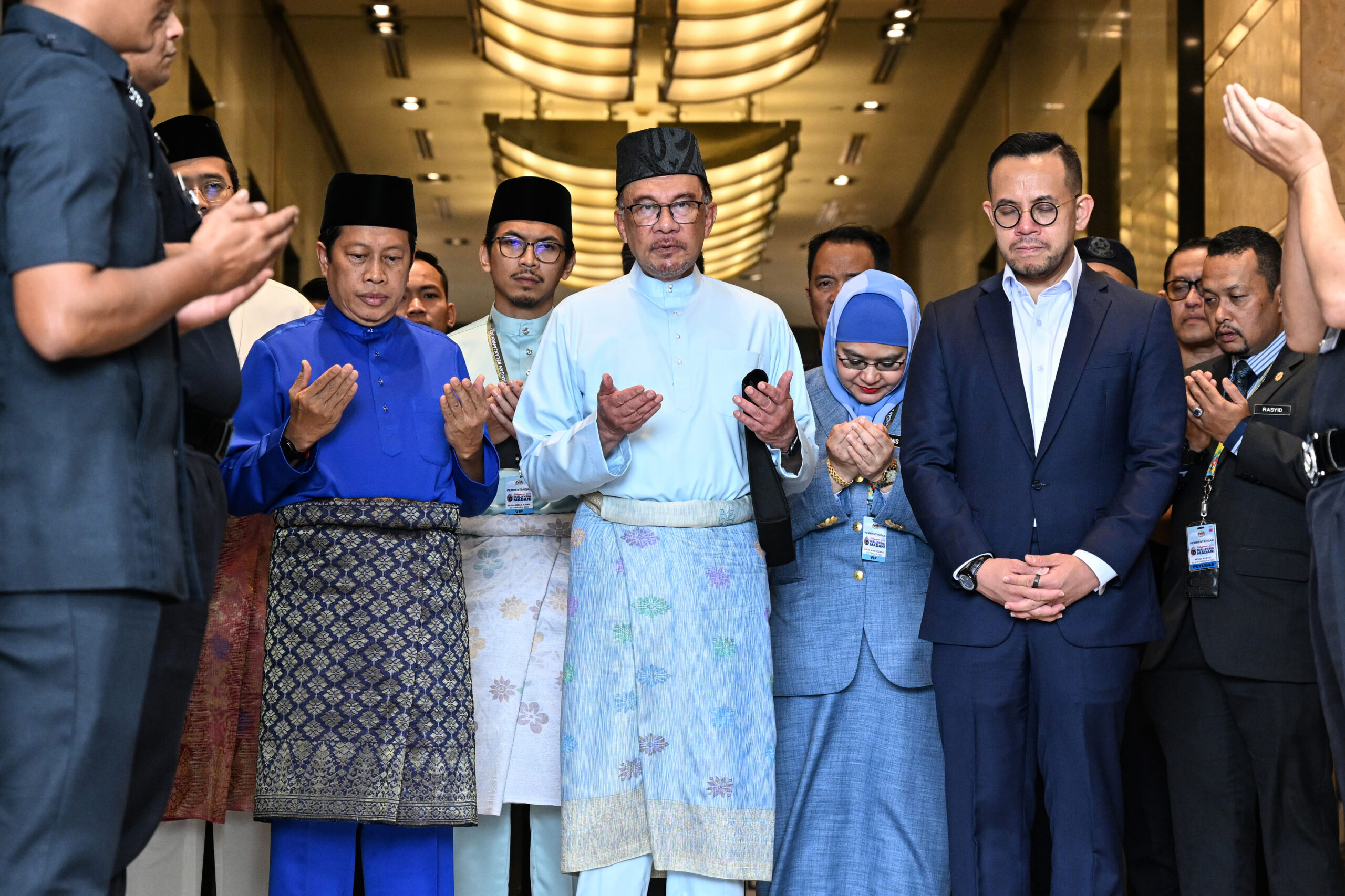
Despite being unable to flip control of any of the states with incumbent PH-BN governments, the opposition coalition PN was able to consolidate and further expand on the “green wave” they experienced in the general elections. The coalition – composed primarily of Islamist and Malay nationalist parties – was able to make inroads in all three government-controlled states.
In Penang, they increased their representation in the state’s legislature from one seat to 11 seats; in Selangor from five seats to 22 seats; and in Negeri Sembilan from no seats to five seats. The party also further consolidated its position in the ‘Malay-Belt’ states of Kedah, Kelantan and Terengganu by securing every seat in the Terengganu state legislature, all but three seats in Kedah and all but two in Kelantan.
So far as the election was a referendum on Anwar’s government, PN clearly feels its performance was strong – or at least is projecting this message. The coalition’s chairman, former Prime Minister Muhyiddin Yassin, declared victory and called on the leaders of the PH-BN coalition to resign their positions at a press conference following the announcement of the election results in all six states.
“It is true that the state election is a referendum on the people’s rejection of the PH-BN collaboration,” Muhyiddin said. “Anwar Ibrahim and Ahmad Zahid Hamidi must take moral responsibility and resign as prime minister and deputy prime minister.”
His coalition’s electoral gains in Malay constituencies came at the expense of BN and UMNO, the party which has historically represented the country’s Malay majority in government. The results mirrored those of the last general election, where UMNO underperformed due to voter dissatisfaction with the party’s perceived corruption problems.
In last year’s general election, Wong said, this resulted in “a Malay revolt against UMNO” which drove many Malay voters to support PN as an alternative. As such, it was vital for UMNO to staunch the flow of Malay voters leaving the party in these state elections, both for the stability of the party and the unity government as a whole.
“If UMNO is not able to penetrate the rural Malay heartland states of Kelantan, Terengganu, and Kedah, then the federal government will be unstable,” said Chin in an interview before the election.
Unfortunately for UMNO, they failed in this task. With the spectre of corruption still lingering over Malaysia’s “Grand Old Party”, UMNO won just 19 of the 108 seats it contested in the election. However, despite failing to deliver the Malay vote and with it the political capital Anwar needed to maintain a stable unity government, there are unlikely to be any serious repercussions within the party for UMNO leadership, said Wong.
“Although there will be (and are already) calls for Zahid Hamidi to step down as the party president, they are unlikely to turn into a strong movement within the party against Zahid,” he said. “Many leaders who are not happy with Zahid were already purged before the state elections; and within UMNO, the power is highly centralised in the hands of the president.”
Ultimately, the weekend’s state elections reinforced many of the trends seen in November’s general election. But it is likely too early to tell whether Anwar and his unity government will be able to alter the country’s course.
“A lot of people are saying that eight months is too short a time for the government to try to convince these Perikatan supporters to change their minds,” said Chin. “The government simply does not have enough time to pursue new policies.”
AmBank and Huawei sign MOU for sustainability financing and business solutions
Will introduce Solar Energy, Green Data Centers, EV Charging, and Energy Storage solutions
NRECC working on Long-Term Low Emissions Development Strategies
AmBank and Huawei Technologies Malaysia (Huawei Malaysia) have signed a Memorandum of Understanding to propel their organisations’ sustainability agenda. The MoU scope entails both parties working together in support of the introduction…Continue Reading
Lucasfilm to shut Singapore operations due to ‘economic factors’ affecting industry
SINGAPORE: Lucasfilm is winding down operations in Singapore after nearly 20 years in the country, with parent company Disney citing economic factors affecting the industry. Lucasfilm’s visual effects and animation studio, Industrial Light & Magic (ILM), has been operating in Singapore since 2006. The studio was founded as Lucasfilm Animation Singapore in 2004 toContinue Reading
Activist targets deputy House speaker over beer post
PUBLISHED : 15 Aug 2023 at 14:01
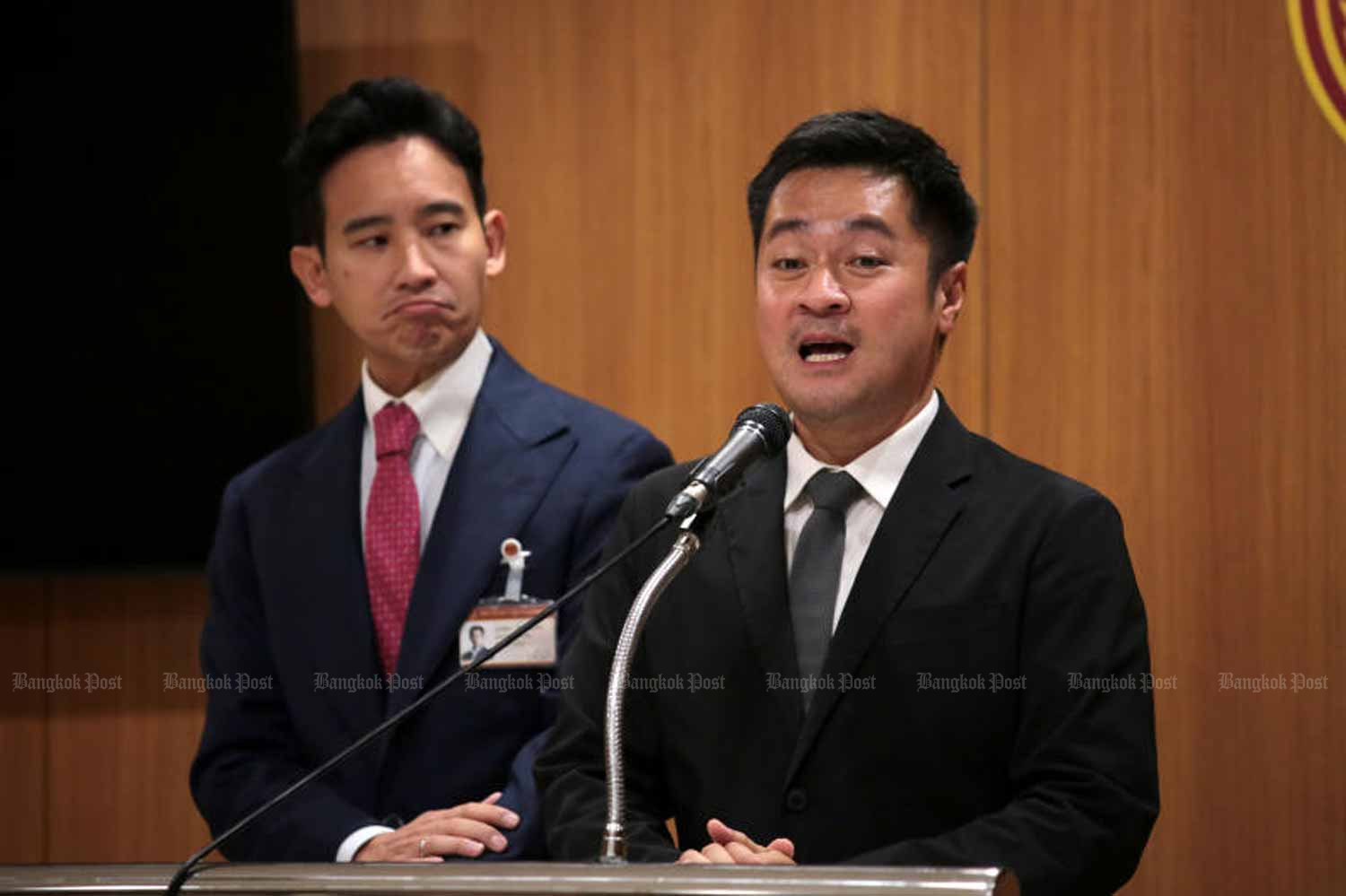
Activist Srisuwan Janya said on Tuesday he is filing complaints against a deputy House speaker from the Move Forward Party over an online post showing the MP with a new craft beer brewed in his home province.
On Sunday Mr Padipat, an MP for Phitsanolok, posted on his Facebook account a picture of himself with a can of beer. He said In the post that it was an interesting product, the first craft beer brewed in Phitsanulok.
Mr Srisuwan said he had already asked House Speaker Wan Muhamad Noor Matha to launch an ethics investigation into Deputy House Speaker Padipat Suntiphada.
Mr Srisuwan alleged that in posting the photograph Mr Padipat had violated Section 32 of the Alcoholic Beverage Control Act, which prohibits the advertising of alcoholic beverages.
He said that offence carried a fine of 50,000-200,000 baht and possible imprisonment.
Mr Srisuwan said he would file a similar complaint against Mr Padipat with the National Anti-Corruption Commission. He would also file a complaint against the Pitsanulok MP with the Alcoholic Beverage Control Committee.
The Move Forward Party has a policy to break the duopoly in the beer market and facilitate the entry of smaller producers and local craft beers.
When Albanese heads to China
Whether Australian Prime Minister Anthony Albanese will visit China in 2023 remains uncertain, but the odds are favorable. Beijing has issued an invitation and Albanese said that the trip remains “likely.”
Foreign Minister Penny Wong has confirmed that Canberra “would look to make sure that a visit can occur.” But there remain two factors that might derail a visit.
First, there remain unresolved bilateral disputes, including trade restrictions affecting Australian barley, lobster and wine, as well as the ongoing detention of Australian citizens like journalist Cheng Lei.
Repurposing a talking point used with vigor by China’s Ministry of Foreign Affairs, Wong has said that these disputes work against creating the “positive atmosphere” that would be conducive to a successful leader visit.
Second, there are bureaucratic challenges to overcome. These include the public disappearance of Chinese Foreign Minister Qin Gang who was scheduled to visit Australia in late July. Qin’s visit would have likely furthered preparations for Albanese’s trip to China.
There is also the difficulty of the Australian embassy in Beijing coordinating a prime ministerial visit when the current ambassador Graham Fletcher finishes his posting in August 2023 and his successor has yet to be announced.
“Will he or won’t he” aside, a more fundamental question is what level of ambition a prime ministerial visit could realistically target.
In late 1996, former Australian prime minister John Howard was able to overcome an earlier period of bilateral tension by settling on a “framework for handling the relationship” with his Chinese counterpart Jiang Zemin. This set up his own first and highly successful visit to Beijing just a few months later.
The Howard–Jiang framework recognized the two countries’ differences but agreed to focus on their “mutual interests.” Howard also assured Jiang that whatever Washington had in mind, Canberra was not “trying to contain China,” and more broadly, “the alliance between Australia and the United States was…not in any way directed at China.”
Re-committing to “important common interests” also constituted the backbone of a 2009 Australia–China joint statement that sought to move the relationship on from a year described by then-Australian ambassador to China Geoff Raby as “our collective annus horribilis.”
A high-ambition Albanese visit would require Beijing to live up to the 2009 joint statement’s commitment to “conduct mutually beneficial trade in accordance with market principles.”
As for Canberra, seeking to anchor a US presence in the region to provide “strategic balance” is one thing. But joining a Washington-led attempt to contain China’s rise is another thing entirely.

Eschewing containment would hardly represent an Australian concession. Former Australian prime minister Scott Morrison insisted in 2020 that China’s economic success was “a good thing for Australia” and juxtaposed his government’s position with that of the United States, saying “not all countries have that view, and some countries are in strategic competition with China. Australia is not one of those.”
While the Biden administration claims that its policies do not amount to containment, this assessment is disputed by informed US analysts. It was not Tokyo, Seoul or The Hague that lobbied Washington to cut off China’s access to advanced semiconductors in October 2022.
Rather, it took more than a year of campaigning by the Biden administration to forge an agreement, the details of which remain unclear.
Australia is not a noted producer of high-tech goods. But there have been suggestions that Canberra may cut Chinese investors off from developing projects in Australia’s critical minerals sector.
A Critical Minerals Strategy released by the Australian government in June 2023 emphasized bolstering supply chain resilience by increasing investment from “likeminded partners.” The partners listed included the United States, the United Kingdom, the European Union, Japan, Korea and India. But not China.
In 2023, several investment proposals in Australia’s critical minerals sector connected to Chinese interests were blocked on the grounds that they were “contrary to the national interest.”
Given that Chinese industrial supply chains are “utterly dependent” on imported raw materials, including Australian iron ore and lithium, a blanket ban on Chinese companies taking stakes in mine sites would unsurprisingly be viewed dimly in Beijing.
An alternative for Canberra is to block only those proposed investments with clear national security sensitivities or to add conditions to approvals, such as mandating that any output produced is made available on global markets.
Locking China out of regional economic integration initiatives like the Comprehensive and Progressive Trans-Pacific Partnership (CPTPP) would also be inconsistent with an approach eschewing containment.
It would, of course, be appropriate to insist that Beijing must commit to the CPTPP’s high standards if it wishes to be considered for membership and to disabuse any notion in Beijing that it could veto another applicant, such as Taiwan, from joining.
Minister Wong is right to flag that Beijing has a responsibility for creating many of the “positive circumstances” that would set up a successful visit by Prime Minister Albanese later in 2023. But Canberra must also decide whether to aim high or low.
James Laurenceson is Professor and Director at the Australia-China Relations Institute at the University of Technology Sydney.
Return of the âBig Stateâ will be short-lived
Economists usually find plenty of ways to disagree about the true meaning of government economic policies.
The big innovation of the past 10-15 years was monetary, with the Bank of Japan at the forefront of what became a worldwide practice of money-creation and the mass-purchase of government securities by central banks.
Economists debated the ultimate purpose of this policy trend – was it anti-deflation, or aimed at rescuing banks and securities markets, or financing public investment? – but the trend itself was indisputable.
Now the big trend is industrial policy, with vast programs of public subsidies and investment, but strangely there is much less debate about it. President Joe Biden has led the way in the United States, which is why some call it “Bidenomics.”
Although the European Union actually got there first with its “Next Generation EU” fund that was set up during the Covid pandemic, America sees its program as bigger, better and more headline-grabbing – which is why the tempting slogan of “Bidenomics” has taken hold, following the earlier examples of Reaganomics and Abenomics.
What economists seem to agree on is that these big programs mean that what they call the Big State is back. This is epitomized in the United States by the Chips and Science Act, devoting US$52.7 billion to supporting the semiconductor industry, and the Inflation Reduction Act, under which more than $400 billion is being spent over the next 10 years on the energy transition and on infrastructure.

By “the Big State” is meant large-scale state intervention in industry – which also means favoring national producers at the expense of imported goods and services, which makes this policy trend also protectionist.
That protectionist aspect contributes to a widespread feeling that the era of globalization might be over. With America and the EU leading the way with big-spending industrial and infrastructure policies, it is assumed that other countries such as Japan and the United Kingdom will have to try to compete so as to stop their own firms and own production moving to where the biggest subsidies are on offer.
Thanks to that theory of competition between nations, the consensus among economists seems to be that this trend of big-spending industrial policies is here to stay – that, just as the big monetary policy trend lasted more than a decade, so will this one.
In support of that argument are two other factors: first, the fact that the battle against climate change and for the green energy transition is a long-term one, which will require public subsidies and investment if it is to succeed; and second, that the technological and military contest between the US and China is also a long-term reality that will perpetuate big-spending industrial policies designed to prevent Chinese dominance, whether military or economic.
To me, however, the idea of this as a long-term trend is both compelling and lacking in credibility. It is compelling because it is true that geopolitical competition and tensions, and the urgency of dealing with climate change, feel fundamental to our era.
But it is lacking in credibility for a simpler reason: Public subsidies and investment need somehow to be financed, and financing these ambitious industrial policies will be very difficult at a time of high levels of sovereign debt and rising interest rates.
The paradox of the previous, monetary-policy-dominated era was that when borrowing was ultra-cheap, few governments felt able to exploit it to finance big programs of public investment. Now that borrowing costs are rising, governments are nonetheless trying to finance costly programs of public investment.
Doing so would be sustainable only if those programs were to succeed in raising the long-term rate of economic growth and thus in raising tax revenues. It would be wonderful if they did have that long-term growth-boosting effect. But it is more likely that any positive effect on growth will be quite short-lived, as it is competing with the negative effects of rising borrowing costs.

The era of big-state industrial policy feels to me as if it will actually prove quite short-lived, at least as a broad phenomenon. For example, political battles in the United States about the official ceiling on federal public debt make it hard to envisage that the Inflation Reduction Act could ever be repeated.
The smaller, geopolitical element to this industrial policy trend might well persist, since both technological export-controls and so-called “de-risking” from dependence on China are driven by politics and not economics. The larger, climate-related portion will also persist in some form, but electorates are always reluctant to vote for tax rises to pay for it.
Overall, the wider popularity of industrial policy runs up against the realities of high public debt. Now that it has been noticed and, by some at least, celebrated, the phenomenon is probably already peaking.
Currently an independent writer, lecturer and consultant on international affairs, Bill Emmott from 1993 to 2o06 was editor-in-chief of The Economist.
This article was originally published in Japanese by Nikkei Business and in English by his Substack publication, Bill Emmott’s Global View. (Subscribe here for free to receive his posts.) It is republished by Asia Times with kind permission. Follow the author on Twitter @bill_emmott
Independence Day: PM Modi says India stands with Manipur
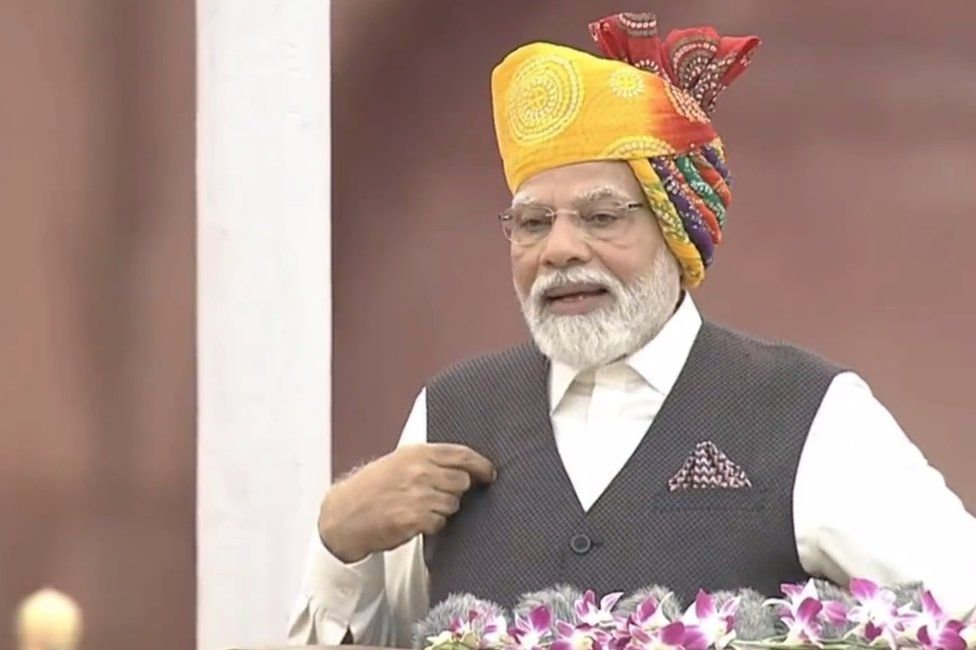 PIB
PIBPrime Minister Narendra Modi said his government was making every effort to restore peace in the state of Manipur as he addressed the country on its 77th independence day.
“I want to tell the people of Manipur that the country is with you,” Mr Modi said.
On Tuesday, he unfurled the national flag at the historic Red Fort in Delhi.
In a speech televised live, he talked about natural disasters, the economy and India’s growing population.
On Manipur, the prime minister said that a lasting resolution could only be found through peace.
“In the last few weeks, Manipur witnessed a wave of violence. Several people lost their lives and our mothers and sisters were dishonoured,” he said.
The state has witnessed violent clashes which broke out in May between the majority Meitei group and the tribal Kuki minority.
More than 140 people have been killed and tens of thousands displaced in the violence. A viral video of an attack in May when two Kuki women were paraded naked by Meitei men shortly after their village was razed sparked outrage and made global headlines.
Mr Modi was criticised for not speaking on Manipur for weeks during the violence.
“Manipur has been peaceful for the last few days,” he said on Tuesday. “The state and the federal governments are working to ensure this continues.”
His speech came days after his government defeated a no-trust vote in the parliament after opposition leaders criticised the government response to the crisis in the state and demanded that he address the house on the ethnic clashes.
In his independence day speech, the prime minister referred to recent reports that said that India had overtaken China to be the world’s most populous country with 1.4 billion people.
“Demography, democracy and diversity” were India’s strength and the country’s youth would have unlimited opportunities, he added.
The prime minister said India’s economy was now the fifth largest in the world and promised that “in the next five years, we will be in the top three”.
“I am confident that in 2047, when India marks 100 years of its independence, it will be a developed nation,” he added.
Mr Modi claimed that the country’s economic situation post the Covid-19 pandemic was better than most other countries. “We have been able to control inflation successfully,” he said.
His claim though is being questioned as India’s middle and lower classes, who make up the bulk of the population, have been hit by skyrocketing prices for essentials in recent months.And official data released on Monday showed retail inflation at a 15-month high of 7.44% in July on the back of a surge in prices of vegetables, cereals and pulses.
The prime minister also touched up the “unimaginable crisis” caused by natural calamities in several states this year.
Heavy rainfall has battered the northern state of Uttarakhand and Himachal Pradesh over the past few days. Dozens of people have been killed in flash floods and landslides.
Mr Modi said the state and federal governments would work together to help the affected people rebuild their lives.
BBC News India is now on YouTube. Click here to subscribe and watch our documentaries, explainers and features.

Read more India stories from the BBC:
Related Topics
Arrest warrant for sailor accused ot theft of ammunition

PUBLISHED : 15 Aug 2023 at 12:48
The court of the 14th Military Circle in Chon Buri province has issued a warrant for the arrest of CPO2 Chanai Khunbuala, who is accused of stealing tens of thousands of rifle cartridges from Sattahip Naval Base.
A source said the Phu Ta Luang police station sought the arrest warrant as the sacked petty officer remained at large, more than a month after the alleged crime.
CPO2 Chanai had been posted at an arsenal at Sattahip Naval Base in Chon Buri. He is accused of the theft of tens of thousands of M855 and M856 cartridges for 5.56mm rifles, and thousands of 40mm grenade launcher rounds.
Anupong backpedals on age pension
PUBLISHED : 15 Aug 2023 at 12:46

Caretaker Interior Minister Anupong Paojinda said on Tuesday the National Committee on the Elderly will have the final say on the new regulation setting income limits on payment of the old-age pension.
The income restrictions, signed by the caretaker interior minister and published in the Government Gazette, have drawn widespread criticism. They apply to new applicants for the age pension, paid to citizens aged 60 years and above.
Responding to reporters’ questions, the minister said the Comptroller General’s Department had given its opinion, that people with other sources of income, such as retirement funds, were not entitled to an age allowance from the state. If paid, the allowance had to be taken back and this would lead to problems.
The National Human Rights Commission and the Ministry of Social Development and Human Security had also discussed the issue, Gen Anupong said.
The ministry then sought an opinion from the Council of State on the existing regulation. The council advised that the regulation was inconsistent with the constitution, which requires that people have a livable income, particularly the needy. This led to the issuing of the new regulation, Gen Anupong said.
The minister said the National Committee on the Elderly would consider how to make payment of the age allowance fair to all. The national committee needed to decide. The caretaker cabinet had no authority to do so, because it was a tie-over responsibility for the new government and required the allocation of a large government budget.
However, the caretaker government had already set guidelines for this issue, he said.
Existing recipients of the age allowance would continue to receive it and, for now, new applicants could also get it based on the old regulation, Gen Anupong said. He hoped this would allay people’s concerns over the new regulation.
The new regulation, setting income limits, was signed by Gen Anupong and published in the Royal Gazette, and said to be effective from Aug 12.
The old regulation was for local administrations to pay universal monthly allowances of 600-1,000 baht to all elderly people – 600 baht for people aged 60-69, 700 baht for people aged 70-79, 800 baht for people aged 80-89, and 1,000 baht for people aged 90 years or more.
However, the new regulation states that only people with no income, or insufficient income to cover the cost of living, are entitled to the monthly age allowance from the state.
The new regulation drew strong opposition key members from the Move Forward and Thai Sang Thai parties.
Wiroj Lakkhanaadisorn, a Move Forward list MP, on Monday slammed the new regulation, saying it would have a severe impact on people turning 60. The requirement for the elderly to prove their poverty may prevent them receiving state welfare, which was in breach of this law, said the outspoken MP.
Khunying Sudarat Keyuraphan, leader of the Thai Sang Thai Party, said the new criterion for receipt of the monthly allowance for the aged was a serious violation of the principle of universal coverage for state welfare, and it was discriminatory.
Anupong hastens to allay concerns over age pension
PUBLISHED : 15 Aug 2023 at 12:46

Caretaker Interior Minister Anupong Paojinda said on Tuesday the National Committee on the Elderly will have the final say on the new regulation setting income limits on payment of the old-age pension.
The income restrictions, signed by the caretaker interior minister and published in the Government Gazette, have drawn widespread criticism. They apply to new applicants for the age pension, paid to citizens aged 60 years and above.
Responding to reporters’ questions, the minister said the Comptroller General’s Department had given its opinion, that people with other sources of income, such as retirement funds, were not entitled to an age allowance from the state. If paid, the allowance had to be taken back and this would lead to problems.
The National Human Rights Commission and the Ministry of Social Development and Human Security had also discussed the issue, Gen Anupong said.
The ministry then sought an opinion from the Council of State on the existing regulation. The council advised that the regulation was inconsistent with the constitution, which requires that people have a livable income, particularly the needy. This led to the issuing of the new regulation, Gen Anupong said.
The minister said the National Committee on the Elderly would consider how to make payment of the age allowance fair to all. The national committee needed to decide. The caretaker cabinet had no authority to do so, because it was a tie-over responsibility for the new government and required the allocation of a large government budget.
However, the caretaker government had already set guidelines for this issue, he said.
Existing recipients of the age allowance would continue to receive it and, for now, new applicants could also get it based on the old regulation, Gen Anupong said. He hoped this would allay people’s concerns over the new regulation.
The new regulation, setting income limits, was signed by Gen Anupong and published in the Royal Gazette, and said to be effective from Aug 12.
The old regulation was for local administrations to pay universal monthly allowances of 600-1,000 baht to all elderly people – 600 baht for people aged 60-69, 700 baht for people aged 70-79, 800 baht for people aged 80-89, and 1,000 baht for people aged 90 years or more.
However, the new regulation states that only people with no income, or insufficient income to cover the cost of living, are entitled to the monthly age allowance from the state.
The new regulation drew strong opposition key members from the Move Forward and Thai Sang Thai parties.
Wiroj Lakkhanaadisorn, a Move Forward list MP, on Monday slammed the new regulation, saying it would have a severe impact on people turning 60. The requirement for the elderly to prove their poverty may prevent them receiving state welfare, which was in breach of this law, said the outspoken MP.
Khunying Sudarat Keyuraphan, leader of the Thai Sang Thai Party, said the new criterion for receipt of the monthly allowance for the aged was a serious violation of the principle of universal coverage for state welfare, and it was discriminatory.





